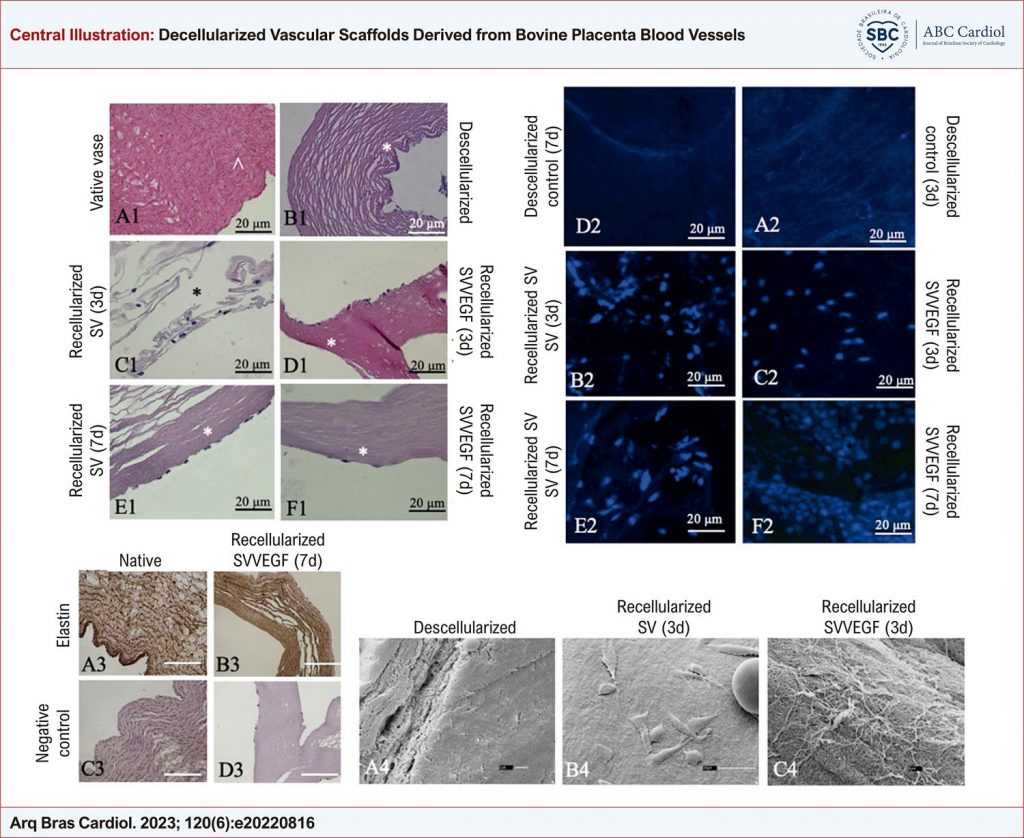Arq. Bras. Cardiol. 2023; 120(6): e20220816
Decellularized Vascular Scaffolds Derived from Bovine Placenta Blood Vessels
This Original Article is referred by the Short Editorial "Scaffolds for Use in Blood Vessel Bioengineering: What are the Prospects?".
Background
Objectives
The present project aims to achieve the artificial development of blood vessels through the recellularization of vascular scaffolds derived from bovine placental vessels.
Methods
The chorioallantoic surface of the bovine placenta was used to produce decellularized biomaterials. For recellularization, 2.5 x 104 endothelial cells were seeded above each decellularized vessel fragment during three or seven days, when culture were interrupted, and the fragments were fixed for cell attachment analysis. Decellularized and recellularized biomaterials were evaluated by basic histology, scanning electron microscopy, and immunohistochemistry.
Results
The decellularization process produced vessels that maintained natural structure and elastin content, and no cells or gDNA remains were observed. Endothelial precursor cells were also attached to lumen and external surface of the decellularized vessel.Conclusion: Our results show a possibility of future uses of this biomaterial in cardiovascular medicine, as in the development of engineered vessels.
857

